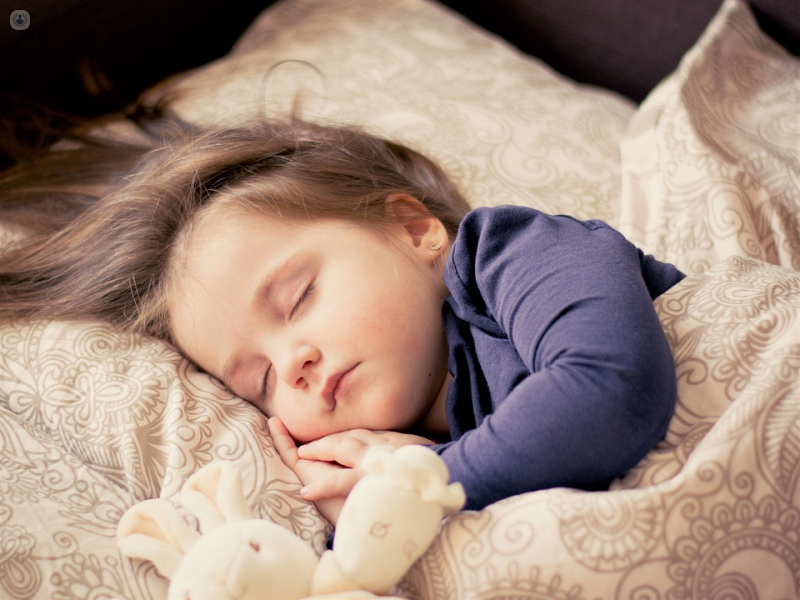Bedwetting in children: ask an expert
Escrito por:If our children are frequently wetting the bed, lots of questions go through our minds. Is bedwetting normal? What causes it? What age do kids usually stop wetting the bed? We asked expert paediatric urologist Mr Andrew Robb, a specialist who looks after young people with problems with their waterworks, for answers to these questions.

Is bedwetting normal?
Bedwetting (enuresis) is very common in young people. As young people grow they need to learn how to control their bladders. During the day we call this potty training, but at night it's a completely different skill they need to learn. With time, the majority of young people do learn to control their bladders, but during that process, they will wet the bed at night. About one in three young people around the age of four and a half will wet the bed at least once a week and with time, this decreases to less than one in ten of nine-and-a-half-year-olds.
What causes bedwetting?
There are lots of things that may cause a young person to wet the bed. Some of them are to do with their bladder, some of them are to do with other factors, such as any other illnesses they have.
The bladder may not stretch enough to allow a young person to be able to store enough urine to stay dry overnight; it could be as simple as them being very constipated, which can stop the bladder from stretching up. It may be that their bladder is overactive and this means that their bladder is constantly trying to squeeze down and that can cause them to wet.
It may be that the young person is producing too much urine overnight. There's a hormone that is released by the body called anti-diuretic hormone, which is released from a gland between the eyes and causes people to shut off urine production at night. Some young people, for whatever reason, either don't produce enough of this hormone or the kidneys don't respond to it, so they produce a lot more urine than their bladder can hold. One of the ways that you can treat bedwetting is to give an artificial version of this hormone.
Some young people don't pick up the signals from their bladder that they need to go to the toilet. This is very common. One of the things that's often said about young people whenever their parents bring them to see me is that “we just can't wake him up” and this fits with the bladder not sending these signals or the person not getting the signals when they're asleep. This is where a bedwetting alarm comes in.
Away from the bladder and the amount of urine that’s produced, there are other conditions that may cause bedwetting:
- Diabetes – anybody who comes to see a doctor with bedwetting should be checked for sugar in their urine.
- Urinary tract infections – these affect the whole function of the bladder and can cause both daytime and night-time symptoms. It's important to check that there isn't an active infection going on.
- Stress or anxiety – this can come from any number of different sources, such as moving house, a new family member, problems at school, bullying, or exams.
All of these things need to be looked at whenever we're trying to work out why a young person is wetting the bed.
At what age is bedwetting a problem?
That very much depends on the young person themself and their family. Bedwetting can have a major impact on family life; it means that there's lots more laundry to be done with pyjamas and bedding. The young person themselves will potentially develop low self-esteem, which can lead to them being shy or withdrawn at school. They are worried that there's something wrong with them; they’ll try and avoid going for sleepovers with friends and with other family members.
It's not so much a question about health, it’s a question about getting the most out of life for these young people. A lot of the things that can be done to help with bedwetting may not be able to cure the bedwetting itself, but they can certainly help the young person and the family find ways of living life to the full.
Visit Mr Robb’s Top Doctors profile to book an appointment or fine more information about paediatric urology.


